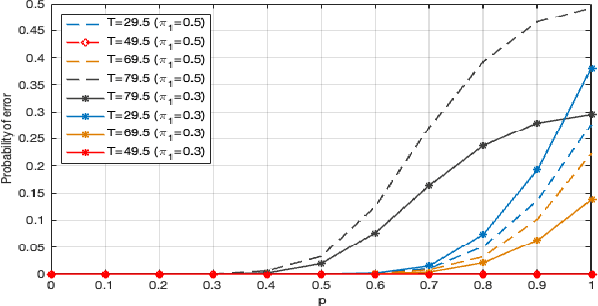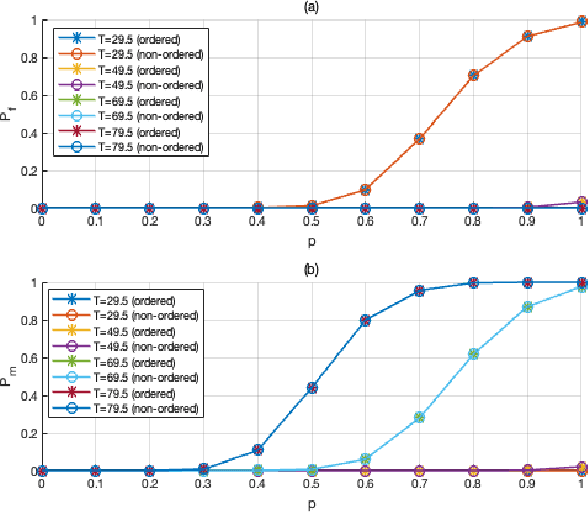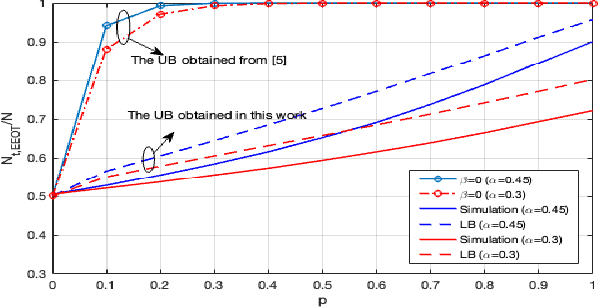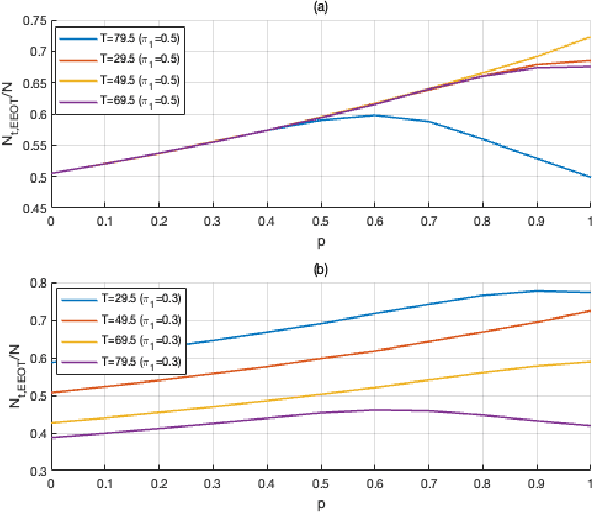Efficient Ordered-Transmission Based Distributed Detection under Data Falsification Attacks
Paper and Code
Jul 18, 2022



In distributed detection systems, energy-efficient ordered transmission (EEOT) schemes are able to reduce the number of transmissions required to make a final decision. In this work, we investigate the effect of data falsification attacks on the performance of EEOT-based systems. We derive the probability of error for an EEOT-based system under attack and find an upper bound (UB) on the expected number of transmissions required to make the final decision. Moreover, we tighten this UB by solving an optimization problem via integer programming (IP). We also obtain the FC's optimal threshold which guarantees the optimal detection performance of the EEOT-based system. Numerical and simulation results indicate that it is possible to reduce transmissions while still ensuring the quality of the decision with an appropriately designed threshold.
 Add to Chrome
Add to Chrome Add to Firefox
Add to Firefox Add to Edge
Add to Edge